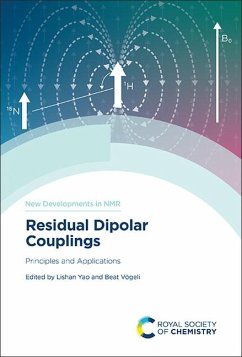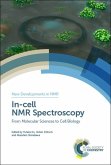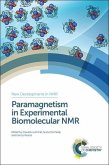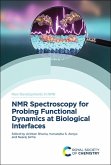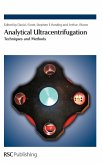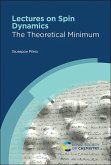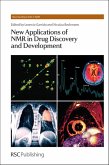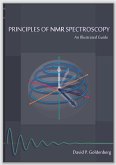"Residual dipolar couplings (RDCs) are NMR measurements widely used to determine structural and dynamic information in small molecules and large macromolecules. This book provides a broad view of RDCs, from basic principles to advanced applications in organic molecules and biomolecules. Exploring the newest developments in RDC measurement and analysis through authoritative accounts written by leaders in the field, this book provides a comprehensive overview on the fundamentals, analysis and applications in one place for the first time. The versatility and accuracy of RDCs have found a large range of applications in NMR, and their measurement and analysis are major research areas. Readers, be they experts or students, will receive a strong understanding of the fundamentals of RDCs and their applications to their research projects."--Back cover.
Hinweis: Dieser Artikel kann nur an eine deutsche Lieferadresse ausgeliefert werden.
Hinweis: Dieser Artikel kann nur an eine deutsche Lieferadresse ausgeliefert werden.

